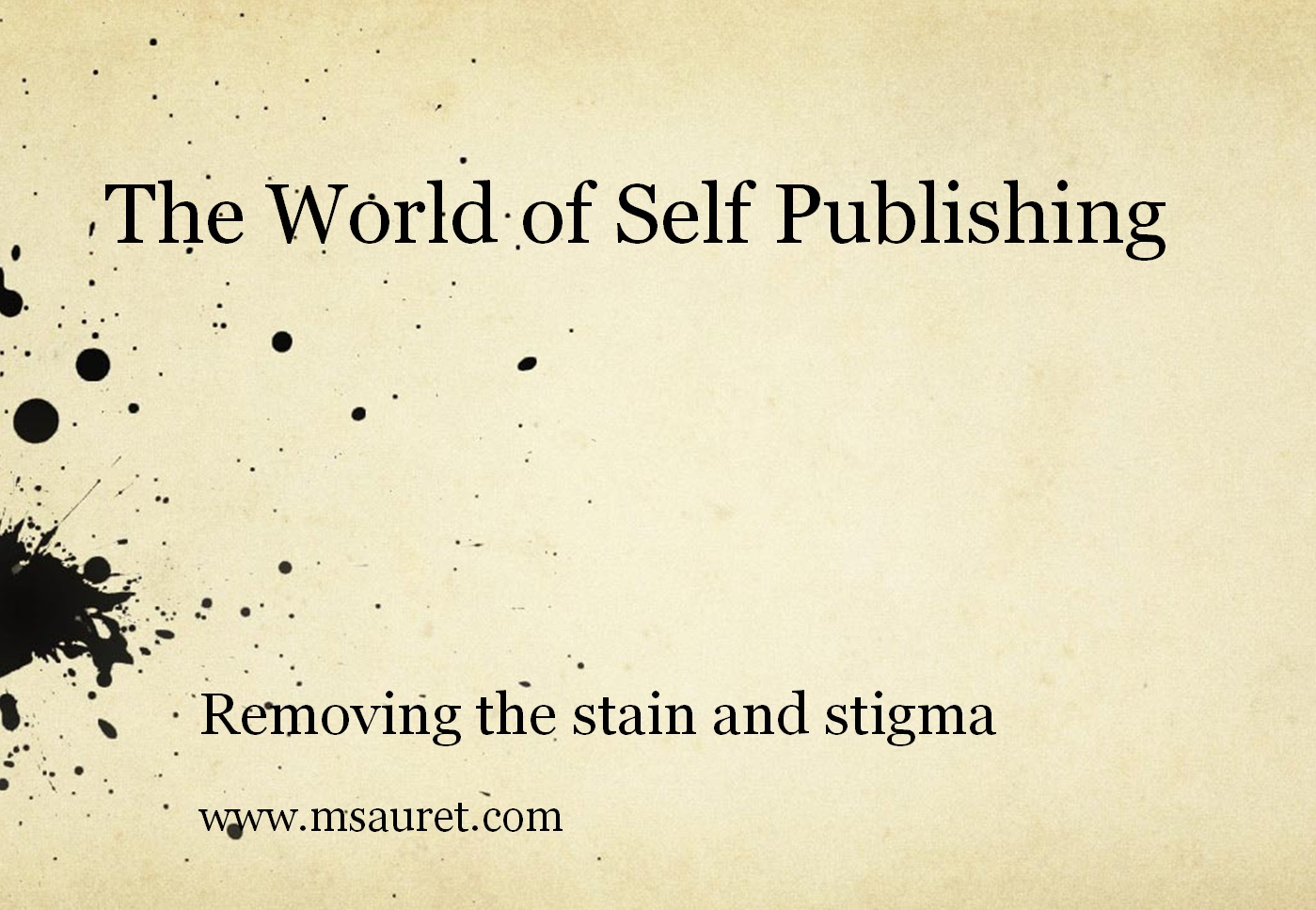
So, you’ve finished writing your book and you’re thinking about self-publishing it. But you’re wondering… how much is it going to cost me?
If you’re artistically talented, you have good connections and you have the right software & tools, you could self-publish the book for almost nothing.
For example, when designing the book cover to “Amidst Traffic” — which by the way, it’s a rad cover if I say so myself — I was able to shoot the cover image with the help of a friend for free, and I laid out the design using Photoshop. All on my own, and it cost nothing.
I saved about $500 or more right there.
But the difference between me and the average self-published author is that I have several years of experience as a professional photographer and I’ve spent enough time using Photoshop and design software that I can produce a clean job that won’t get scoffed at.
Also, I had a friend copy-edit my book for about $200, a service that can cost anywhere from $500 and $3,000 depending on the editor’s experience and your book’s length.
Here’s a list of costs you can expect to put out a professional product:
Professional editing: $1,500 to $3,000
Don’t cheapen out on the editing. This will absolutely kill your book if you decide to play the head-in-the-sand game. I have years of experience in writing and I was educated at the University of Pittsburgh, and I still recognized the need of a quality editor.
Book cover: $250 to $1,000
75% of 300 booksellers surveyed said the look and design of the book cover is the most important component of choosing what to sell (Source:
www.selfpublishingresources.com). The book cover is like a business card or a hand-shake. It tells you almost nothing about the actual quality of the book’s interior, but if it’s bad, readers won’t even give it a chance.
ISBN Registration: $125 (for 1) to $250 (for 10)
Some publishing sites include an ISBN for free, but that means your book will be released under their imprint name. I always recommend spending the money and register your own publishing company with Bowker. You can
purchase your ISBN through www.myidentifiers.comBook layout & formatting: $150 to $350
Some sites help you set this up for free with templates, but if you have a book with a complicated layout requirement, or you want something a little artful, you might have to pay someone to set it up for you. Again, I laid out my own book’s pages for free using Adobe InDesign.
Book listing: $25 to $300
Websites such as
CreateSpace will charge a small fee to have your book made available by online and brick-and-mortar bookstores other than Amazon.com
Book printing: $5 to $20 per book depending on which self-publishing company you use and page count
Total: $1,925 to $4,650+ before printing a single book
And we haven’t spent a single dollar on advertising yet!
If you’re thinking of publishing a book on your own, definitely start planning now on some strategies that can help you save money. Seek out help from connections you have or take the time to learn software that can help you do a bulk of the production yourself. If you’re not too savvy with the production requirements, then it’s time to start saving some money.
What about you?
Are there some costs involved I might have missed? What have you done to save some of the costs required to self-publish a book?

 Michel Sauret – Award-Winning Army Journalist | Independent Author Award-Winning Army Journalist, Independent Author
Michel Sauret – Award-Winning Army Journalist | Independent Author Award-Winning Army Journalist, Independent Author








Hey Michael, I’m an aspiring writer as well, and just spent a year getting a book series completed. Now that it is time to publish, I’m interested in self-publishing. How is your journey going? I am a complete outsider to the entire writing market/business side. My theory is that if you write a good enough book, exposure will show that, and at some time or another the book will sell itself. From your dedication to hard work, along with the fact you have won awards and received great reviews, I can only assume your books are quality. Are you finding this theory to be correct or flawed? Has selling your book gotten any easier for you?
Hey Michael,
Selling books is by far the most difficult venture a writer can take on. That’s the challenge of being self-published is that our love and passion is writing, and very few of us have any marketing or sales skills to actually promote our work. That’s why, I believe, publishing houses will continue to live on.
Your theory is correct, however. There is no greater sales tool than simply having a quality book. If your book ends up being THAT GOOD, your readers will share it with a passion and be your best salesmen. Recently, I came across a book that really spoke to me and decided to tell everyone I could about it.
Amidst Traffic is a bit of an anomaly because it’s a collection of short stories, and from a market standpoint, short stories really don’t sell very well. Novels and Biographies have a much larger sales footprint. Amidst Traffic has enjoyed much success from an awards and review standpoint, but it’s a very methodical and though-provoking book. It’s a book that requires the reader to enjoy it slowly and with much thinking. For that reason, it will never be a huge best-sellers because most readers enjoy lighter and easier books to read.
However, what this book has done is established me as a quality and respectable author, so future books will probably sell with more ease. I plan on publishing several novels that I know will appeal to a much larger market. That’s key #2 in selling books: writing more books! I’ve heard so many authors say this and I believe it to be true, myself.
By the way, soon I’ll write an article about the various marketing tactics I’ve tried and what sort of sales/responses they produced.
God bless,
Michel
Great post… but I think it’s important not to overcomplicate the process for new authors, right?
New services and options make it EASIER & CHEAPER than ever before…
Step #1: Don’t talk to a publisher! They’ll take your rights and leave you with less than a dollar per book.
Step #2: Use spell-check on your manuscript. Read through it and make sure it flows well. Ask a couple of friends to do the same. You don’t need an expensive editor for this.
Step #3: Get a great cover design (people really DO judge a book by it’s cover!!!)
Step #4: Get a typesetter (interior book designer) that can prepare files for Lulu.com (print-on-demand) so you don’t have to pay for any printing costs up-front or handle any distribution headaches!!
Step #5: Upload book files to Lulu.com & select the distribution option (so it shows up on Amazon!). Note: Lulu also give you a free ISBN for your book.
Step #6: Promote, promote, promote!!! (I recommend doing a mix of personal promotion and using a paid option like the amazing new “dark posts” in Facebook — it’s really cost-effective if you know how to use the targeting).
Please feel free to drop me a line via my website http://www.BookDesignHQ.com if you have any other questions! 🙂
Thanks for your comment Matt, but I would highly discourage against #2 being sufficient on its own. I can’t tell you how many times I had proof-read my manuscript (both printed on paper) and still missed mistakes. A second set of eyes (professional eyes) is a must for proofing a manuscript before publishing.
Sure Michel…. I agree mostly, except I find a lot of authors who write a book that takes a long time before sales grow enough to pay back all the expenses (sometimes they never do), so I wonder, for those authors who want to avoid the risk of a huge up-front outlay, if a “2nd Edition” with professional editing is a good way to go AFTER they see if it’s going to sell enough copies to warrant spending all the extra $$$$ … This is totally possible with Print-On-Demand services, because you’re not left with 2,000 copies of the 1st Edition! haha 😉 … What do you think?
Hey Michael.
I’m from Kenya and an aspiring writer. A book I’m writing is almost complete and my friends are saying its good, but they are friends. Anyway, the Kenyan book market is not that good, about 95 percent of books published are textbooks, children books or inspirational books. This means that marketing fiction is very difficult. However, this does not translate that Kenyans don’t read fiction, as a matter of fact they do but most of the time foreign. I’m also young, I’m 21 I’m afraid that readers will not be able to appreciate it as much as they would with a much older writer. I was glad I found your article soon, may I get some advice on how to handle this.
Hey Walter, I know we exchanged a few emails about your writing. I also wanted to follow up here. How has your writing journey been goign?